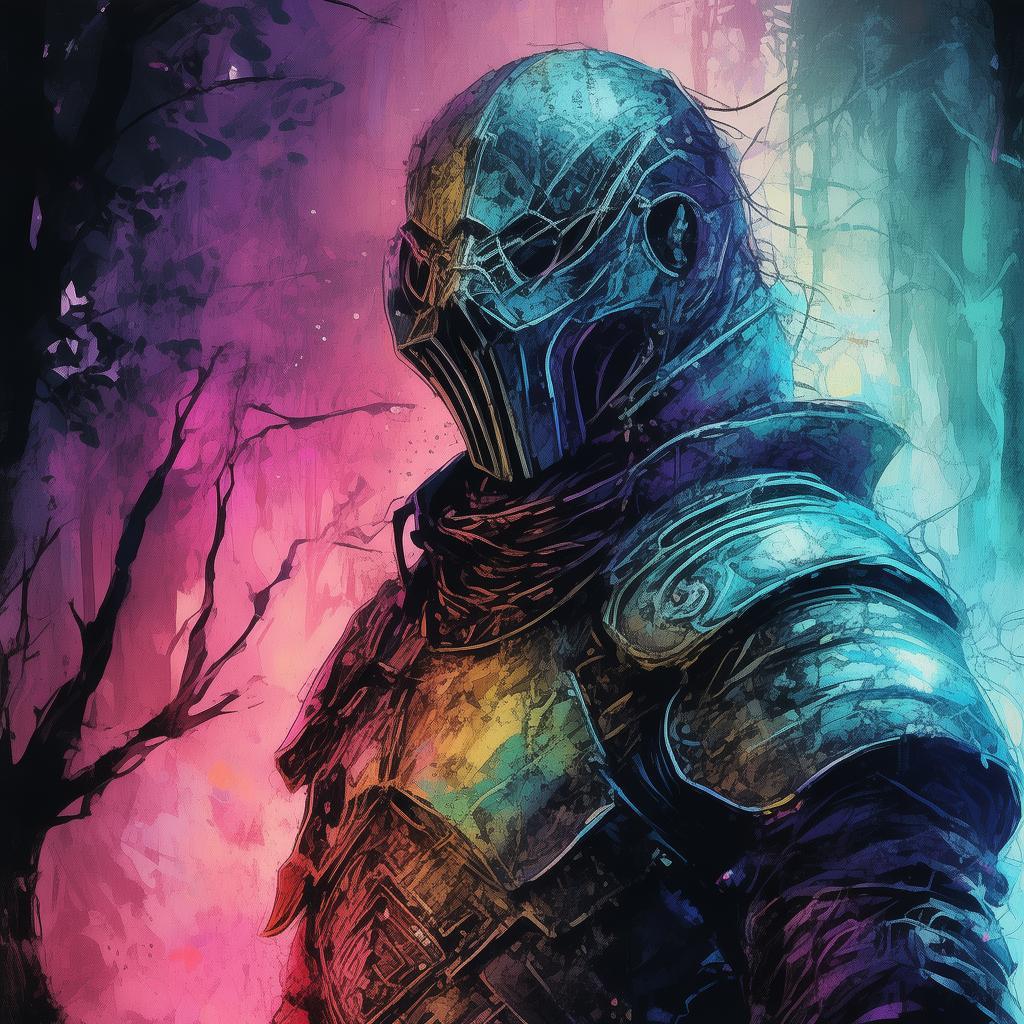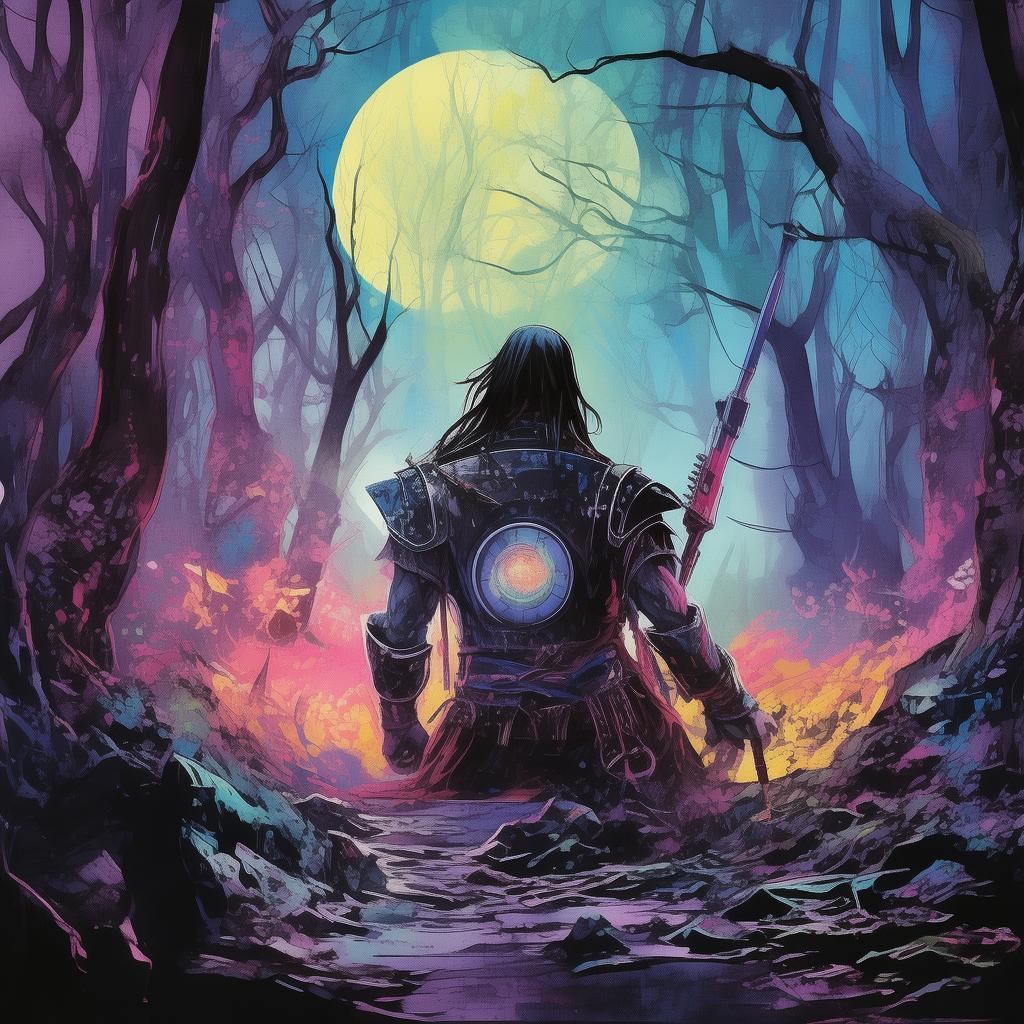The Labyrinth of Echoes: A Quest for the Soul's Redemption
In the heart of the ancient land of Elysium, where the laws of probability dictated the very fabric of existence, there lay a labyrinth known as the Echoes of the Soul. It was said that within its walls, the echoes of one's past decisions and the whispers of destiny intertwined, creating a paradox that could either lead to enlightenment or eternal damnation.
The hero, known only as Aion, had been chosen for a quest that was as much a test of his resolve as it was a dance with fate. Born under the sign of the Buffon's Dilemma, Aion's very existence was a testament to the infinite possibilities that probability held. His soul was a tapestry woven from the threads of chance and choice, and it was this soul that he sought to redeem.
The labyrinth was a vast maze, its corridors stretching into infinity, each turn echoing with the cries of those who had come before and failed. The air was thick with the scent of forgotten dreams and unfulfilled destinies. Aion stood at the entrance, his eyes reflecting the labyrinth's dark promise.
The first echo he encountered was that of a young girl, her voice trembling with fear as she spoke of a promise broken. "I was to save my village from the encroaching darkness, but I failed," she wailed. Aion felt the weight of her failure press upon his own heart, understanding that his own journey was intertwined with the echoes of the past.

As he ventured deeper, the labyrinth's walls began to whisper of probabilities, probabilities that could lead him to victory or to his own demise. "If you choose the left path, you will find the truth," one voice beckoned. "But if you take the right, you will unravel the labyrinth's greatest secret," another warned.
Aion, driven by a sense of duty and a desire to understand the paradox that bound him, chose the left path. The corridors grew narrower, the air colder, and the echoes louder. He met the spirits of those who had chosen differently, their faces twisted with regret and sorrow.
One such spirit, an old man with eyes like the moonless night, spoke to him. "Child, you seek redemption, but the labyrinth is a place of illusions. The truth is not what it seems, and your soul's fate is not yet written."
Aion, undeterred, pressed on. He reached a chamber where the walls were lined with mirrors, each reflecting a different version of himself, each version a different path he had taken. The mirrors began to flicker, and the reflections became more intense, more desperate.
It was then that Aion realized the labyrinth was not just a physical maze, but a reflection of his own soul. Each echo was a part of him, each choice a path he had walked. The Buffon's Dilemma was not just a mathematical conundrum but a moral paradox, a question of whether one's fate was predetermined or if it was the sum of one's actions.
In the heart of the labyrinth, where the echoes were loudest, Aion found a pedestal with a single, glowing crystal. The crystal's light was both blinding and soothing, and it seemed to call to him. He reached out, and the crystal pulsed in his hand, filling him with a sense of clarity and peace.
The labyrinth began to collapse around him, the walls closing in, the echoes fading. Aion stood at the center, the crystal's light illuminating his path. He understood that the labyrinth was not a place of punishment but a crucible of self-discovery.
As the labyrinth dissolved into dust, Aion emerged into a clearing bathed in the soft glow of the morning sun. He looked around and saw that he was no longer alone. The spirits of those who had failed had gathered around him, their faces now serene.
The old man with the moonless eyes approached Aion. "You have found your soul, hero," he said. "The labyrinth was a test, and you have passed. Your soul is now free to choose its own destiny."
Aion, feeling a newfound sense of purpose, walked away from the clearing, the echoes of the labyrinth still resonating in his heart. He knew that his journey was far from over, but he also knew that he had the strength to face whatever lay ahead.
The Labyrinth of Echoes had not only tested Aion's resolve but had also revealed the true nature of his soul's paradox. He had found not just the truth about his own existence but the courage to face the moral choices that defined him. In the end, it was not the labyrinth that had changed Aion; it was Aion who had changed the labyrinth, turning a place of despair into a beacon of hope.
✨ Original Statement ✨
All articles published on this website (including but not limited to text, images, videos, and other content) are original or authorized for reposting and are protected by relevant laws. Without the explicit written permission of this website, no individual or organization may copy, modify, repost, or use the content for commercial purposes.
If you need to quote or cooperate, please contact this site for authorization. We reserve the right to pursue legal responsibility for any unauthorized use.
Hereby declared.









